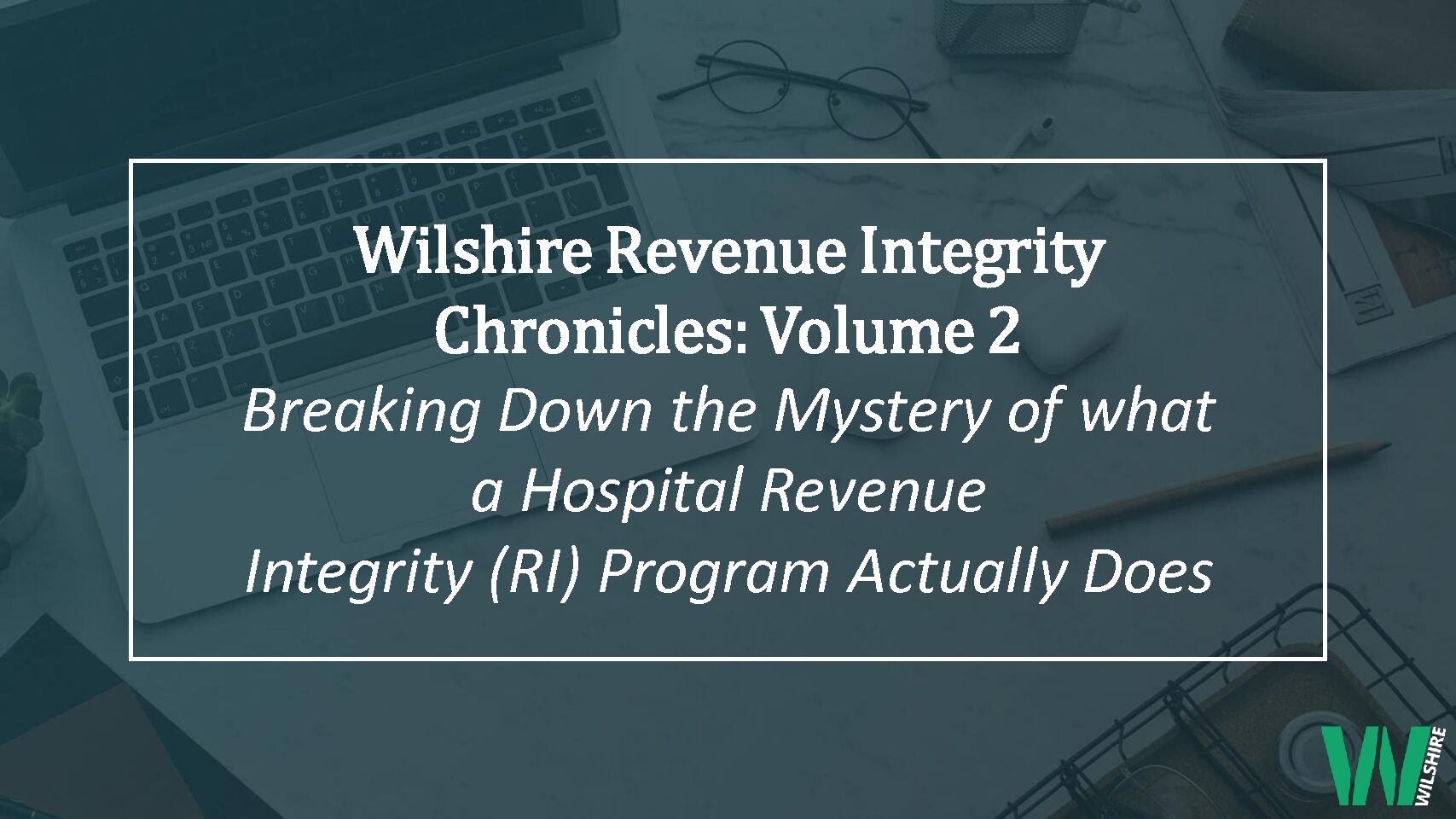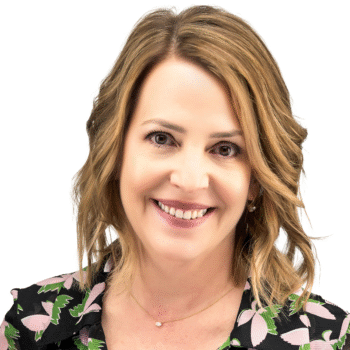Wilshire Revenue Integrity Chronicles (WRIC): vol 2, March 2021
Breaking Down the Mystery of what a Hospital Revenue Integrity (RI) Program Actually Does
Wilshire Revenue Integrity Chronicles – Volume 1 focused our attention on how, over the past decade, providers have crossed the bridge into the electronic world of healthcare clinical data and patient accounting through the implementations of EHRs. But chargemasters, charge posting, electronic claim submission, all existed before that transformation, so how did this change Revenue Integrity Programs? Perhaps even solidify their place in the revenue cycle? This is the second edition of a 4–part series, that explores that transition and its impact on RI functions.
What is RI Anyway?
One consistent description of RI is that it is after Access, and before Claims, making it smack in the middle of the Revenue Cycle. Those of us in RI are the “middle child” of the Rev Cycle, which is why it is often so mysterious.
Most will seriously answer this question by naming areas of expertise or responsibilities like; working daily WQs; chargemaster maintenance, charge capture/reconciliation oversight and billing ‘compliance.’
But what do RI programs and professionals do? I found using descriptions of other careers helpful and that they resonated with others in the community. So much so, that it inspired this series.
First topic;
RI programs are the Architects of Revenue Recognition
We, the ‘architects,’ develop strategies based on operational experiences and the ‘contractors,’ or IT teams, build those strategies in the system. That may seem like a gross generalization, but I believe that it provides the strongest infrastructure to best build and maintain reliable results. How often have we listened to operations ask IT, ‘can the system do that?’. Only to be told, in earnest yes, to most every option. Therefore, in most circumstances, and only if you have a seasoned RI team, operations is the best bet as architect. So, what do these RI architects design?
- First, they build and maintain relationships with clinical leadership and IT teams. The more developed the relationship, the better the revenue recognition. RI teams know when a new clinic is opened, and they know if it’s hospital based or not (and know what that means to EAP build and modifiers, etc.). They know whether a hospital in a system is 340b or not and what that means to shell EAPs for drugs in Willow. They know when the OR has a new surgeon doing a new procedure and which OR level to assign to it in OpTime. When PFS has a problem with an NDC code on a claim, RI knows who to contact to get it fixed. They are the glue that binds the clinicals to the financial through these relationships.
- While many RI programs may differ significantly, there is one thing virtually all of them manage, the Chargemaster or Charge Description Master (CDM – EAP in Epic). For hospitals, it is the ‘blueprint’ that lays the foundation that the hospital will use to build a claim to submit to payers for goods and services rendered in the most efficient and compliant way possible. There are thousands, literally thousands, of data elements in one EAP charge. Most hospitals have chargemaster between 5,000 – 15,000 depending on type of facility (if there are many more than that then there are probably areas to be looked at.) The RI professional knows how to build those data elements so that they follow the blueprint. Things like revenue codes, CPT and HCPCs codes, alternate payer codes, descriptions your grandmother can understand, etc. And what many do not fully understand, is that there are often multiple ways to complete each data element, and if you do not stick to that blueprint, your foundation will not weather the test of time. Regardless of service or supply, an RI professional will be able to tell you how charges are setup and captured by looking at the charge or revenue code. And if they cannot, there is probably some revenue leakage somewhere.
Wilshire Note: while many hospitals converted to Epic’s CDM, known as the EAP Masterfile, we find many have yet to leverage the functionality it (and other master files) offer. There are myriad reasons for this, rapid installs, multiple affiliations and acquisitions, etc. Optimizing the EAP is a must for a solid foundation and one of our favorite things to do.
- Fee schedules and pricing – while finance departments might manage the profits, losses, costs, and capital, every RI professional out there, knows the buck stops here. They focus on how services are charged for – time or procedure – for example. They must be aware of all the other buildings going up at the same time, like new contracts, pricing transparency initiatives, payer billing requirements, not to mention trying to keep up with Medicare’s latest regulations. They understand how hospitals are paid, by both commercial and government payers and must ensure they are building in such a way to best report their goods and services to ensure proper reimbursement and defensibility of charges.
- Compliance Charging and Billing – because there are many billing requirements for governmental payers like Medicare and Medicaid, and they often change, RI teams are called upon to review regulations and provide guidance on what can be billed, how, when, etc. RI professionals must have a thorough understanding of how reimbursement works for these payers and how charging and billing workflows impact that reimbursement. To ensure that all revenue and codes and reimbursement are completely – and compliantly – realized. This knowledge informs how charge capture workflows are built on front end and claim edits on the back end. The overall goal is to understand these requirements and leverage the system to do all the work with as few exception workflows as possible.
Stay tuned for vol. 3, part 3 of 4 later this month; RI teams are the Air Traffic Controllers of charges and billing data in the EHR.
To learn more about Wilshire’s Revenue Integrity Services, please visit our service line page.

